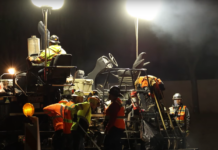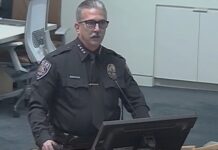By Michelle Chance
Destinee Cruz is a sophomore at Maricopa High School with a life like most teenagers. She has a large circle of friends and is dedicated to her studies.
Born in Arizona, she moved with her family to Mexico at a young age and spent the next 13 years immersed in the culture and language.
Cruz’s return to the States, her birthplace, was met with obstacles inside the classroom, like navigating favorite subjects in a different language. But the challenge doesn’t keep Cruz from working toward her goal.
“I came back to study English,” she said.
Maricopa Unified School District receives $1.29 million annually to assist English Language Learners like Cruz.
That funding recently came under fire by state politicians, arguing the tax that delivers desegregation dollars to school districts like MUSD should be killed.
The debate began as the state shifted the funding responsibility from taxpayers statewide to those in districts that receive desegregation money. The change resulted in increased secondary property taxes for Maricopans.
That tax funds the program and salaries of 25 teachers who instruct ELL students.

Senate Bill 1529, signed by Gov. Doug Ducey and passed by the Legislature in May, alleges secondary property taxes “levied pursuant to this subsection do not require voter approval.”

MUSD could join in a lawsuit with Pima County and Tucson Unified that would ask a judge to rule on the legality of the state’s action to change the desegregation funding source without a vote of the people.
Pinal County and the City of Maricopa have expressed solidarity with MUSD as news of the tax source broke – going so far as to publish a seething press release in August, stating in part: “The State Legislature passed a law that instituted a secondary property tax without putting it to a vote of those affected, which we believe is illegal and unconstitutional. The City of Maricopa, the Maricopa Unified School District and Pinal County did not raise your local property taxes. The state Legislature and the Governor did.”
No matter the funding source, the program remains active. And teachers in non-SEI classrooms who have ELL students said the program is invaluable.
Desert Wind Middle School instrumental music teacher Roger Wagner criticized the view of some politicians that desegregation funding should be ousted altogether.

Wagner, one of thousands of Arizona teachers to support the #RedForEd movement earlier this year, expressed frustration with the governor and the Legislature, who have touted increasing teacher salaries – while also working to shift the burden of desegregation tax to the local level.
“You can’t light a house on fire and call 9-1-1 and be the hero,” Wagner said.
The faces of MHS desegregation funding
This story appears in the October issue of InMaricopa.




![Shred-A-Thon to take place tomorrow An image of shredded paper. [Pixabay]](https://www.inmaricopa.com/wp-content/uploads/2024/03/shredded-paper-168650_1280-218x150.jpg)












![Shred-A-Thon to take place tomorrow An image of shredded paper. [Pixabay]](https://www.inmaricopa.com/wp-content/uploads/2024/03/shredded-paper-168650_1280-100x70.jpg)
